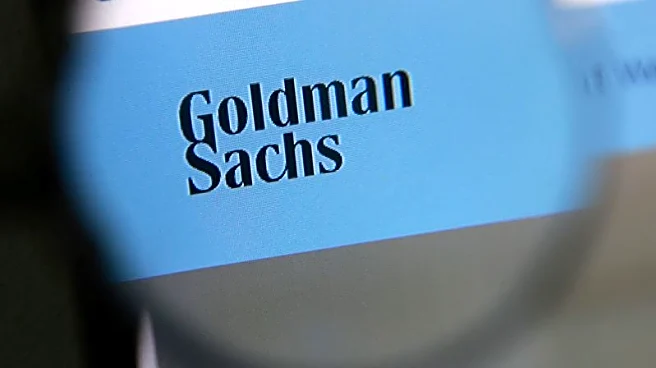What's Happening?
The Trump administration has implemented a series of tariffs that have significantly increased U.S. import tax revenue. According to the U.S. Department of Treasury, the United States collected approximately $190 billion in import tax revenue during the first nine months of 2025, a substantial increase from $73 billion during the same period in 2024. This rise is largely attributed to broader tariff rates introduced by the Trump administration since April. Brazilian imports, particularly agricultural products like beef and coffee, have faced a combined 50% tax rate, although some Brazilian orange juice imports remain exempt. President Trump recently discussed these tariffs with Brazilian President Luiz Inacio Lula da Silva, who requested a reprieve from the added 40% tariff. Trump also met with Canadian Prime Minister Mark Carney to discuss potential trade deals and tariff relief, as new tariffs on Canadian steel and aluminum have impacted the Canadian economy.
Why It's Important?
The increase in tariffs has significant implications for U.S. industries and international trade relations. The higher import taxes are affecting U.S. companies and consumers, leading to increased costs for goods. Companies like Conagra Brands and McCormick & Co. have reported higher tariff-related expenses, which could lead to increased prices for consumers. The tariffs are also reshaping trade relationships, as countries like Brazil and Canada seek to negotiate relief or alternative trade agreements. The U.S.-Mexico-Canada Agreement (USMCA) may be at risk, potentially affecting agricultural trade between the U.S. and its neighbors. The tariffs are a strategic tool for the Trump administration to influence global trade dynamics, but they also pose challenges for domestic and international stakeholders.
What's Next?
Further discussions between President Trump and Brazilian President Lula are expected, as both leaders aim to address the impact of tariffs on their respective economies. The meeting with Canadian Prime Minister Carney may lead to new trade agreements or tariff adjustments, particularly concerning steel and aluminum imports. U.S. companies will continue to monitor and adapt to the evolving tariff landscape, potentially seeking mitigation strategies to offset increased costs. The broader implications for international trade relations and domestic economic conditions will unfold as these discussions progress.
Beyond the Headlines
The tariffs imposed by the Trump administration highlight the complex interplay between trade policy and economic strategy. While intended to protect U.S. industries, the tariffs may lead to unintended consequences, such as strained international relations and increased costs for consumers. The long-term impact on global trade dynamics and domestic economic stability remains uncertain, as stakeholders navigate the challenges posed by these policy changes.










